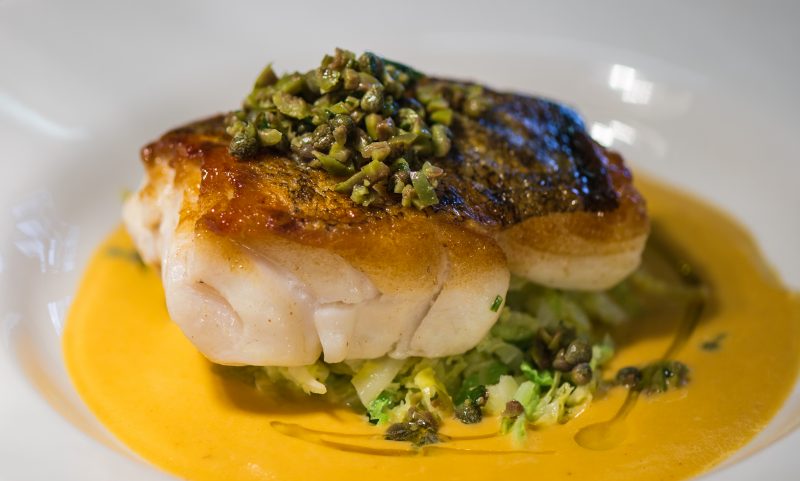
Hake fillet with bouillabaisse and green olive tapenade
This is a rare and dazzling book that defies categorisation: a memoir in the form of episodic essays, with a generous helping of recipes. It is the story of how a Whitstable teenager into punk rock became one of our greatest and most original chefs, turning The Sportsman, ‘a grotty rundown pub sandwiched between the salt marshes and the sea,’ into one of the country’s most loved and lauded restaurants. (The Sportsman was awarded a Michelin star in 2008 and has been named best restaurant and best gastropub at the National Restaurant Awards 2016 and 2017.)

Chef/patron and author Stephen Harris
Stephen Harris was born in Sidcup and moved to Whitstable when he was six. At the end of his road was a massive pea field, and in the book he recalls eating peas from the pod ‘when they were still quite small and warm. They were so sweet and tender that with that first taste I was spoilt for life.’ A vocation was perhaps ignited, but first came music, and in the late 1970s, Stephen was in a punk band. In 1978, the band was rehearsing for an album at Graveney village hall, a mile down the road from The Sportsman. A diary entry for 18 March states: ‘Went down to the “Sportsman”, drank etc. Good practice.’
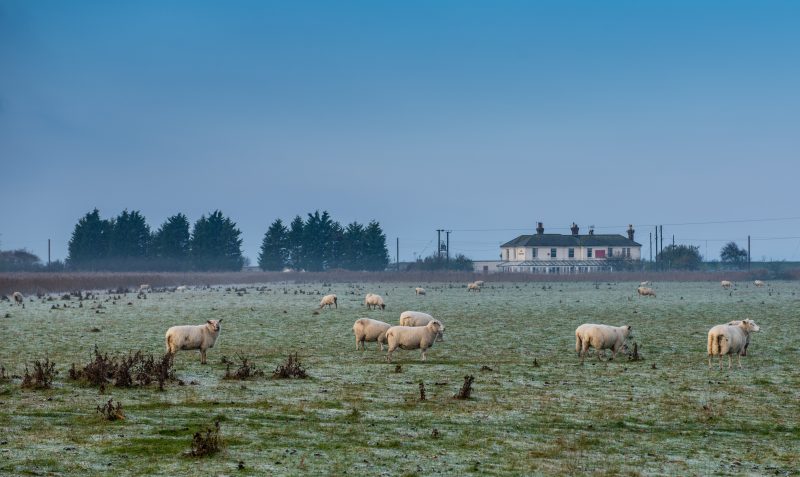
The Sportsman from across the marshes on a cold misty morning
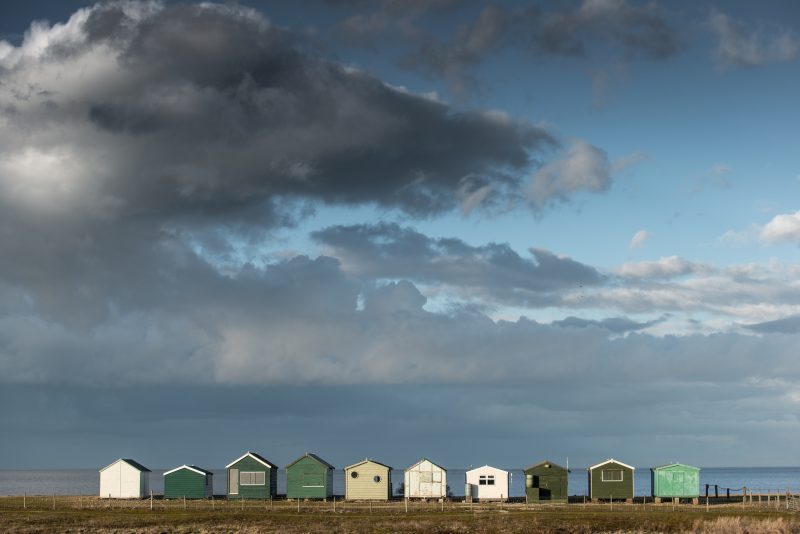
Beach huts form a line between marshes and sea
The Sportsman doesn’t crop up again until late 1998 when Stephen had returned to Whitstable and was looking for premises for his own restaurant where he could cook ‘food with real ambition.’ On a chance visit to the blighted pub, he saw its potential and knew he had found his perfect site. The next ten months were spent securing the lease. The story then takes off on 1 November 1999 when, keys to the building finally in hand, Stephen spent the next week with his brother Philip and a group of friends ‘ripping out the layers of crap that had accrued over the years.’ A new building started to emerge. ‘It was like a sleeping giant awakening.’ A loan of £20,000 from their brother Damian paid for the renovation. ‘It was energising,’ writes Stephen, ‘to strip the kitchen back to just four clean white walls and a newly painted floor.’
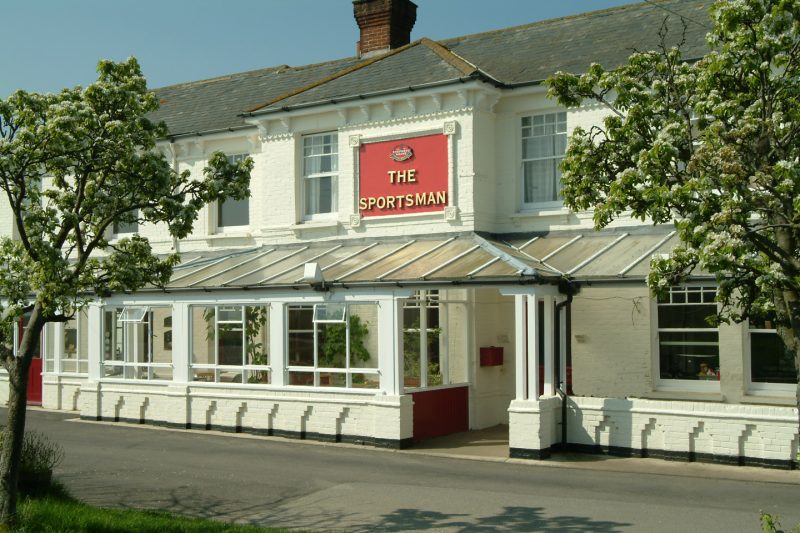
The ‘sleeping giant’ restored to glory
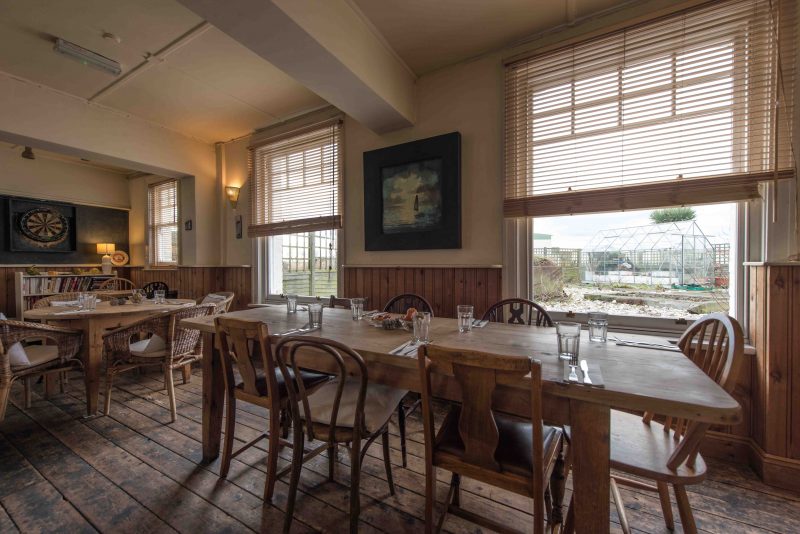
The comfortable but informal interior
Six days later the interior of the pub was ready and a few friends were invited in for a drink on the Saturday night. ‘That night I found myself behind the bar when the phone rang: it was someone wanting to book a table, and I realised that we had forgotten to buy a diary to take bookings. We were so close to the wire with the budget that I decided we would just make do, and grabbed my own diary.’ On the Tuesday night Stephen cooked in The Sportsman for the first time: ‘Watercress soup with oysters, pot-roast pork with sage roasting juices, and hot chocolate pudding were my three stand-out dishes from that night.’ As he finished the washing up, late that evening, he pondered on the future: ’The only way that people would venture out on a winter’s night was because the food was so good that they had to. The food must be that good.’ To this end, there would be: ‘No advertising, no marketing but the purest form of growth – word of mouth.’
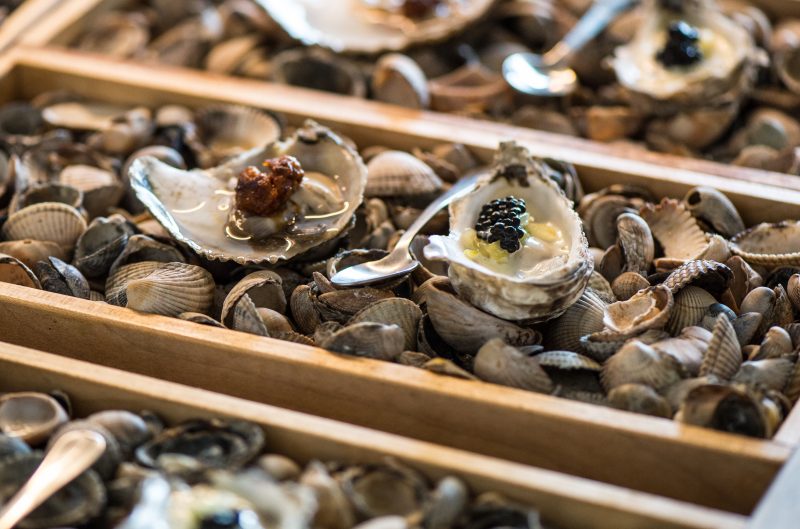
Whitstable native oysters with chorizo and rock oyster, pickled cucumber and avruga caviar
This decision has brought spectacular success. The pub’s website now warns that weekends are booked up five to six months ahead, particularly in summer, and even mid-week bookings need to be made one or two months in advance. The Sportsman has become a place of culinary pilgrimage – chefs are instantly recognisable, comments Shelley Barnfather, familiar to customers as front of house, because they pick up their plates and smell the food before tucking in.

Slip sole with seaweed butter, a longstanding favourite
Like many people who become exceptional at what they do, Stephen is an autodidact. He taught himself to cook by reading the cookbooks of the great chefs of the day – Nico Ladenis, Pierre Koffman, Marco Pierre White – and then eating at their restaurants. Later, at home, he would copy what he had eaten. ‘I realised that I could teach myself to cook – with the great chefs of London as my unwitting teachers.’ He also realised that if he ever wanted to have a restaurant: ‘I would have to start at the bottom as a commis chef and work my way up,’ so this is what he did for the next few years.
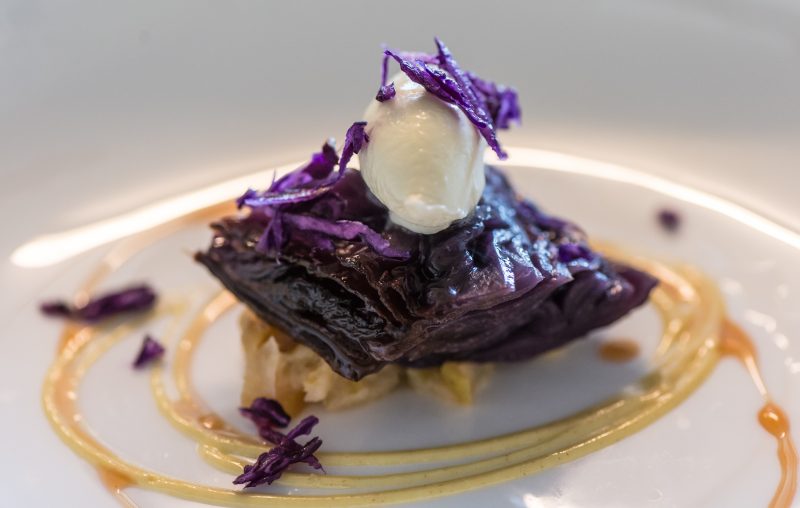
Pot-roast red cabbage, apple and fresh cheese
At first, when he had acquired The Sportsman, he continued to emulate the great chefs, using local ingredients. After a few years he realised he had to develop a style of his own. And this has been his singular achievement – to revive ancient culinary traditions and develop them, drawing on ingredients that come from Kent’s unique geography, geology, climate and history, the elements that constitute a true Kentish terroir. Stephen cites the historic salt marshes of the northern coast, good for grazing sheep and the production of salt, the moderating effect on climate of the sea, the proximity to Seasalter of the woodlands called the Blean. The mild climate results in wonderful strawberries and cherries, and the lush pastures of the Weald of Kent produce milk, cream and cheese as good as any in Normandy.
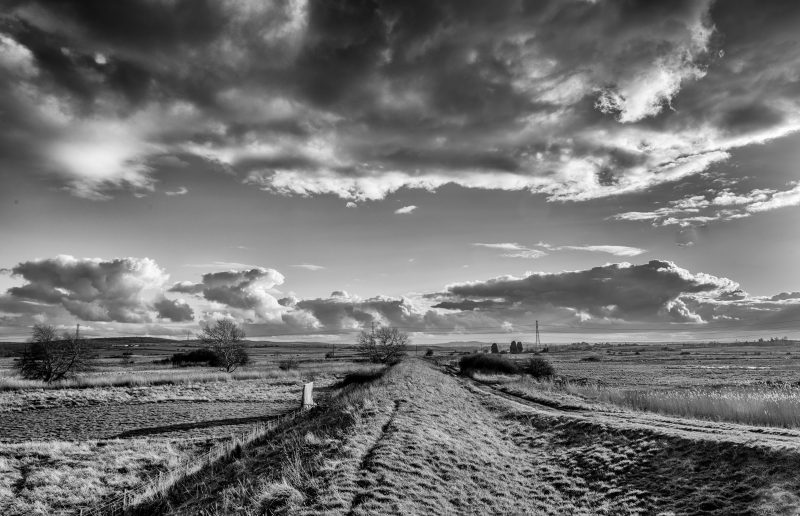
The landscape with old saltworks, covered with earth over time
An essay in the book by Stephen’s friend, archaeologist Tim Allen, reveals Seasalter to have been, in the time of William The Conquerer, the ‘larder’ of the archbishops of Canterbury. He traces it back to the Domesday Book, which identifies ‘a small borough named Sesaltre, which properly belongs to the kitchen of the archbishop.’ Fisheries are identified, pannage (pasture) for hogs and seven salt houses, although due to shifting boundaries they were described as being at that time in Whitstable.
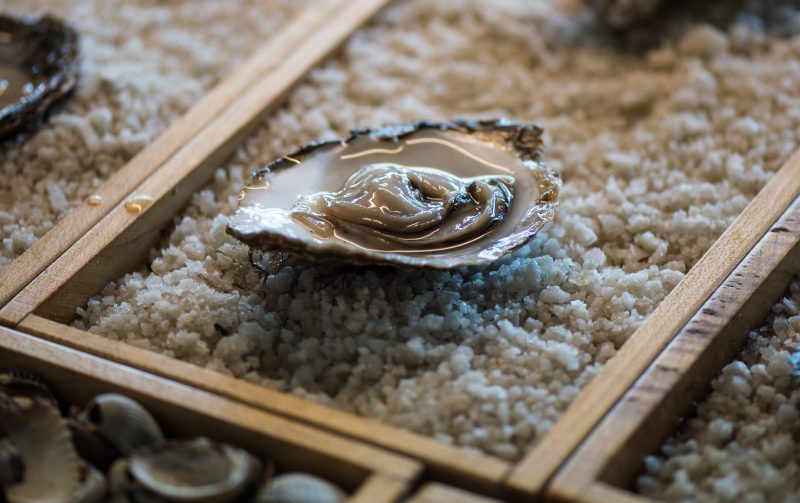
A Whitstable native; the estuary coast has some of the best oyster beds in the world
Stephen makes butter, cures hams, and makes his own salt. When asked why, he says: ‘My stock answer is that any chef who lives in a place called Seasalter and doesn’t try making his own salt is asleep on the job.’ Fruit and vegetables are grown in the pub ‘allotment’ and in two polytunnels. Sea lettuce is gathered from the sea. The elderflowers for a fritter will have been plucked from a nearby tree a minute or two before they are served on a plate. He believes in employing local chefs and looking after them, and keeping the wealth generated by the pub in the local economy.
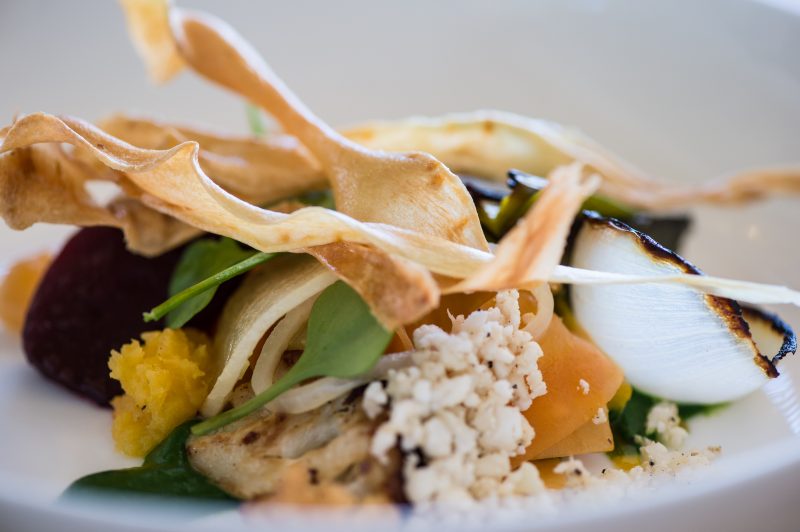
Salmagundi, a glorious mixed salad dating from the 17th century
One of the 50 magnificent recipes in this book is for a salmagundi, the 17th century name for a copious English salad, composed of salad leaves and vegetables – whatever is in season – cooked meat, nuts and flowers. The Sportsman strikes me as a magnificent salmagundi of a book. It is composed of many ingredients generously shared. Give it widely as a Christmas present, but make sure you keep a copy for yourself.
The Sportsman, by Stephen Harris, with photographs by Toby Glanville, is published by Phaidon, price £29.95.
The Sportsman
Faversham Road
Seasalter
Whitstable
Kent
CT5 4BP
Tel 01227 273370
www.the sportsmanseasalter.co.uk
Text: Sarah. Photography: Philip Harris